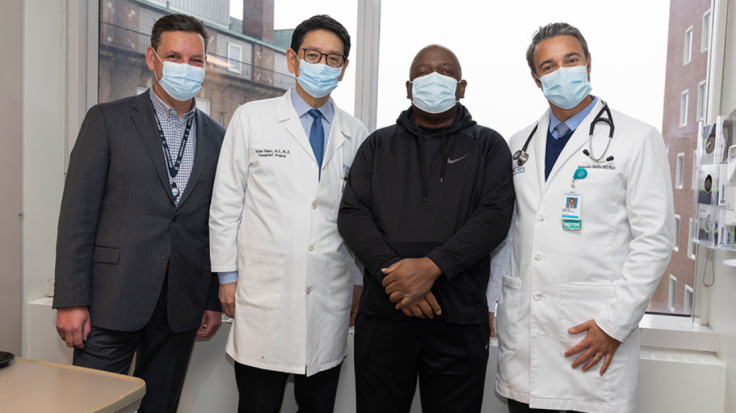The medical community continues to innovate and conduct hours of research to improve modern medicine. A team from Massachusetts General managed to successfully transplant a gene-edited pig kidney to a human patient. Unfortunately, the patient only survived for two months.

Doctors Said It Wasn't the Gene-Edited Pig Kidney
Organ transplant is necessary for those who have organs that can no longer perform for survival, but it can be tricky since organs are scarce. Depending on the patient's status on the transplant list, they can wait for months and even years.
Doctors have been working on ways for animal organs that are closest to humans, such as pig kidneys, to be a viable alternative. A team from MassGen hospital managed to successfully perform a transplant of a gene-edited pig kidney about two months ago.
Unfortunately, the patient Richard Slayman recently passed away. While it's quick to assume that his death may have been caused by a failed transplant, the doctors behind the surgery said that the transplant wasn't the cause, as per Interesting Engineering.
Even before the groundbreaking transplant, Slayman was already suffering from conditions like hypertension and Type 2 diabetes. He had already received a transplant prior from a human donor and has been on dialysis for seven years.
The patient still believed in the surgery and thought that it would provide hope for thousands of people who needed transplants to survive. Slayman's family also said that although they are saddened by his passing, they take "great comfort knowing he inspired so many."
His agreement to the gene-edited pig kidney transplant contributed to the continuing research in animal-to-person transplants, which will eventually help solve the shortage of human organs compared to the number of people who need them.
The Scarcity of Donated Human Organs
People can suffer from their condition for a while before finally getting the organs they need to survive, and depending on what they need, it will take a while before UNOS matches an organ for them. There are a lot of factors at play, including the severity of the patient's condition.
If the organ center deems a patient too unhealthy to receive an organ, then they will have no other choice but to resort to medication and other treatments. Even if they are eligible, there's still the required condition a donor should be in.
The donor's organs need to be procured immediately after death, and they can only survive for a few hours, as per Life Source. Even if everything falls into place, there's still a chance that the patient would reject the organ and it will start to fail.
That means that they will have to return to the transplant list and will wait again for weeks to years. At that time, there is a chance that the patient would become so sick that they would jump at the top of the transplant list, or would be too ill to survive the surgery at all.
Gene-edited animal organs can be the solution for many transplant limitations. Not only will it be the answer to scarcity, but it can also be an option for people who are not eligible for human organ donations.









